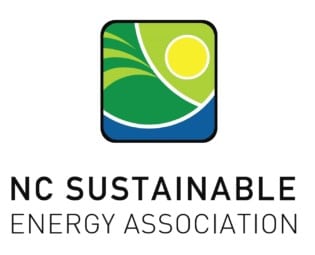Exploring Renewable Energy Options
In our quest for a cleaner, more sustainable energy future, the exploration of renewable energy sources has become increasingly important. Among the array of alternatives, biomass and solar energy stand out as promising contenders, offering distinct advantages and considerations in our transition away from fossil fuels. Biomass energy harnesses the power of organic materials, such as wood, agricultural residues, and waste products, to generate heat and electricity, while solar panels convert sunlight directly into clean and renewable electricity. As we delve into the intricacies of these renewable energy technologies, it becomes apparent that understanding their differences is crucial in making informed decisions that will shape our energy landscape for generations to come. Join us on this journey as we delve into the world of biomass and solar energy, exploring their benefits, challenges, and potential contributions to a more sustainable future.
Understanding Biomass Energy
Biomass energy taps into the power of organic materials such as wood, agricultural residues like crop leftovers, and waste products to produce heat or electricity. This renewable resource has been in use for generations, making it a time-tested energy solution.
How Biomass Energy Works
Biomass energy systems stand as a testament to humanity’s ingenuity in utilizing nature’s resources to meet our energy needs sustainably. These systems operate by harnessing the energy stored within organic materials, such as wood, agricultural residues, and waste products, through various conversion processes, offering solutions for both heat and power generation.
Biomass Combustion for Heat and Power Generation
At the core of biomass energy systems is the process of biomass combustion, where organic materials are burned in specialized furnaces or boilers to produce heat. This heat can then be used directly for heating spaces, providing warmth and comfort in residential, commercial, and industrial settings. Alternatively, the heat generated from biomass combustion can be used to produce steam, which powers turbines to generate electricity through a process known as biomass power generation.
The versatility of biomass combustion allows for its application across a wide range of industries, from district heating systems and cogeneration plants to biomass-fired power stations. These systems play a vital role in providing reliable and renewable energy sources, contributing to energy security and reducing reliance on fossil fuels.
Biomass Conversion into Biofuels
Biomass can also be converted into liquid biofuels, such as ethanol and biodiesel, through various biochemical and thermochemical processes. Biofuels derived from biomass offer a cleaner and more sustainable alternative to traditional fossil fuels, reducing greenhouse gas emissions and lessening environmental impacts associated with transportation.
Bioethanol, for instance, is produced through the fermentation of sugars or starches found in biomass feedstock, like corn, sugarcane, or cellulose-rich materials. Biodiesel is derived from vegetable oils or animal fats through a process called transesterification, where triglycerides are chemically converted into fatty acid methyl esters (FAME).
These biofuels can be blended with conventional gasoline or diesel fuels or used as standalone fuels in vehicles, providing a renewable energy source for transportation while reducing dependence on petroleum-derived fuels.

Advantages and Challenges of Biomass Energy Systems
While biomass energy systems offer multiple benefits, including renewable energy generation and waste reduction, they also face certain challenges. Environmental concerns, such as emissions of air pollutants and greenhouse gasses from biomass combustion, require strict emission controls and sustainable biomass management practices to reduce their impact on air quality and climate change. The competition between biomass energy production and food production, particularly in regions with limited arable land, necessitates careful land-use planning and sustainable biomass sourcing to avoid conflicts and ensure food security.
Despite these challenges, biomass energy systems remain a valuable component of the renewable energy landscape, offering versatile and sustainable solutions for meeting our energy needs while reducing our carbon footprint. With continued advancements in technology, policy support, and public awareness, biomass energy systems hold potential to contribute to a more sustainable and resilient energy future.
Benefits of Biomass Energy
One of the significant advantages of biomass energy is its versatility. Organic materials for biomass are abundant and widely available, making it a reliable and accessible energy source in many regions. Biomass energy can also provide economic benefits by creating jobs in industries like forestry, agriculture, and waste management. By utilizing organic waste materials for energy production, biomass also helps reduce landfill waste and diminish environmental pollution.
Challenges and Limitations of Biomass Energy
While biomass energy offers several benefits, it also comes with its share of challenges. One concern is the environmental impact of biomass harvesting and combustion. Clearing forests or diverting agricultural residues for biomass production can lead to habitat loss and biodiversity decline. Burning biomass releases carbon dioxide and other pollutants into the atmosphere, contributing to air pollution and climate change if not managed properly.
Another challenge is the competition between biomass production and food production. Using agricultural residues or dedicated energy crops for biomass can potentially conflict with food security goals, especially in regions where resources are limited. Sustainable land management practices and careful resource planning are essential to ease these challenges and ensure the long-term viability of biomass energy as a renewable energy source.
Introduction to Solar Panels
Solar panels, also referred to as photovoltaic (PV) systems, function by harnessing the energy from sunlight and converting it directly into electricity using semiconductor materials. This process occurs within the solar panel’s photovoltaic cells. When sunlight strikes the surface of a solar panel, it stimulates electrons within the semiconductor material, generating an electric current. This direct current (DC) electricity flows through the connected circuitry of the solar panel. To make the electricity generated by solar panels usable for homes or businesses, it must be converted from DC to alternating current (AC), which is the standard form of electricity used in most electrical systems. Inverters are employed to perform this conversion, ensuring that the electricity produced by the solar panels is compatible with the existing electrical infrastructure.
Advantages of Solar Panels
Solar panels offer numerous advantages as a clean and renewable energy source:
-Clean and Renewable: Solar energy production produces no greenhouse gas emissions or air pollutants, making it environmentally friendly and sustainable.
-Low Operating Costs: Once installed, solar panels have minimal operating costs since they rely solely on sunlight for power generation. Maintenance requirements are generally low, contributing to long-term cost savings.
-Scalable and Adaptable: Solar panel systems can be tailored to meet a wide range of energy needs, from small residential installations to large-scale commercial or utility projects. Their versatility makes them suitable for various applications, including rooftop installations, ground-mounted arrays, and even portable solar panels for off-grid use.
Limitations and Challenges of Solar Panels
Despite their numerous advantages, solar panels also face certain limitations and challenges:
-Dependence on Sunlight and Weather Conditions: Solar panels require direct sunlight to generate electricity efficiently. Their output can be affected by factors such as cloud cover, shading, and the time of day. Solar energy production decreases during nighttime hours, necessitating alternative energy sources or energy storage solutions to meet electricity demand during these periods.
-High Initial Installation Costs: While the cost of solar panels has declined significantly in recent years, the initial investment for purchasing and installing a solar panel system can still be relatively high. This upfront cost may pose a barrier to entry for some consumers, despite the long-term economic benefits of solar energy.
Solar panels represent a promising and increasingly popular renewable energy solution, offering clean, sustainable electricity generation with minimal environmental impact. While they face certain limitations and challenges, ongoing technological advancements and supportive policies continue to drive the adoption of solar energy worldwide. By embracing solar power and addressing these challenges proactively, we can unlock its full potential as a key component of a more sustainable energy future.
Comparing Biomass and Solar Panels
Biomass: Biomass energy, while renewable, can have significant environmental implications if not managed sustainably. Harvesting biomass feedstock, such as wood or agricultural residues, may contribute to deforestation or habitat destruction if done irresponsibly. Additionally, burning biomass can release pollutants into the air, contributing to air pollution and potentially exacerbating respiratory issues in nearby communities.
Solar Panels: In contrast, solar panels offer a much cleaner alternative for electricity generation. By harnessing sunlight directly, solar panels produce electricity without emitting greenhouse gasses or other pollutants. This makes solar energy an environmentally friendly choice, helping to lessen climate change and reduce air pollution.
Cost Considerations
Biomass: While biomass energy systems may have lower fuel costs in some cases, the initial setup costs can be significant. Investments in infrastructure, equipment, and transportation can contribute to high upfront expenses, limiting the practicality of biomass energy projects, particularly for smaller-scale applications.
Solar Panels: Although solar panels often require a substantial upfront investment for purchasing and installing the system, these costs are offset by long-term savings on energy bills. Solar panel owners can also benefit from potential incentives, such as tax credits or rebates, further reducing the overall cost of solar energy systems over their lifespan.
Energy Efficiency
Biomass: The efficiency of biomass energy systems can vary depending on factors such as the technology used and the type of biomass feedstock employed. Traditional combustion methods may have lower efficiency rates compared to more advanced conversion techniques, leading to energy losses during biomass processing and combustion.
Solar Panels: Solar panels excel in terms of energy efficiency, as they directly convert sunlight into electricity with relatively high efficiency rates. While solar panel efficiency can vary depending on factors like sunlight intensity and panel quality, advancements in solar technology have significantly improved overall efficiency in recent years, making solar energy a reliable and efficient choice for electricity generation.
Suitability for Different Locations
Biomass: Biomass energy systems require access to biomass feedstock, which may limit their feasibility in regions with limited agricultural or forestry resources. Additionally, biomass energy projects may face challenges related to transportation and storage of biomass feedstock, particularly in remote or rural areas.
Solar Panels: Solar panels can be installed virtually anywhere with sufficient sunlight, making them a versatile option for electricity generation. Whether installed on rooftops, ground-mounted arrays, or integrated into building facades, solar panels can provide clean and renewable energy in a wide range of locations, from urban centers to rural communities.
Both biomass and solar panels offer unique advantages and challenges as renewable energy sources. While biomass energy may provide a reliable source of energy and utilize organic waste materials, it can also have significant environmental impacts and face challenges related to cost and efficiency. Solar panels offer clean and efficient electricity generation with minimal environmental impact and greater versatility in terms of location and application. By carefully considering these factors, policymakers, businesses, and individuals can make informed decisions about which renewable energy option best suits their needs and contributes to a more sustainable future.

Choosing the Right Renewable Energy Source
In the journey towards a more sustainable energy future, both biomass and solar panels play pivotal roles in diversifying our energy sources and reducing our reliance on fossil fuels. However, selecting the most suitable option requires careful consideration of various factors, including location, resource availability, and specific energy requirements.
Location and Resource Availability
The geographical location of a project plays a crucial role in determining the feasibility of biomass or solar energy. Biomass energy relies on access to organic materials like wood or agricultural residues, making it more feasible in regions with abundant biomass resources. In contrast, solar panels can be deployed virtually anywhere with access to sunlight, making them a versatile option for both urban and rural areas.
Specific Energy Needs
Different applications may have varying energy requirements, influencing the choice between biomass and solar energy. Biomass energy may be more suitable for applications requiring continuous, high-power output, such as industrial processes or district heating systems. Solar panels, with their modular and scalable nature, excel in decentralized applications like residential rooftop installations or off-grid power systems.
Weighing Advantages and Limitations
Ultimately, the decision between biomass and solar panels hinges on a careful evaluation of their respective advantages and limitations. Biomass offers the advantage of utilizing organic waste materials and providing a reliable source of energy but comes with challenges related to environmental impact and cost. Solar panels, while offering clean and efficient electricity generation, face limitations such as dependence on sunlight and initial installation costs.
Moving Towards Sustainability
By critically assessing the advantages and limitations of biomass and solar panels, stakeholders can make informed decisions that contribute to a more sustainable and resilient energy future. Whether it’s maximizing biomass energy potential in regions with abundant organic resources or harnessing the power of sunlight through widespread adoption of solar panels, each choice moves us closer to achieving our renewable energy goals.
By embracing both biomass and solar panels and leveraging their respective strengths, we can pave the way towards a more sustainable and resilient energy future for generations to come. It’s through careful consideration, innovation, and collaboration that we’ll ultimately achieve our shared vision of a cleaner, greener world powered by renewable energy.
As the #1 solar panel company in North Carolina, Ohio, and Virginia, 8MSolar stands at the forefront of the renewable energy revolution, spearheading the transition to clean and sustainable power solutions across the region. With a commitment to innovation, quality, and customer satisfaction, 8MSolar has earned its reputation as a trusted industry leader, delivering cutting-edge solar panel technologies and exceptional service to clients seeking to harness the power of the sun. With a track record of excellence and a dedication to driving positive change, 8MSolar continues to set the standard for solar energy companies, empowering communities and businesses to embrace a brighter, more sustainable future.









